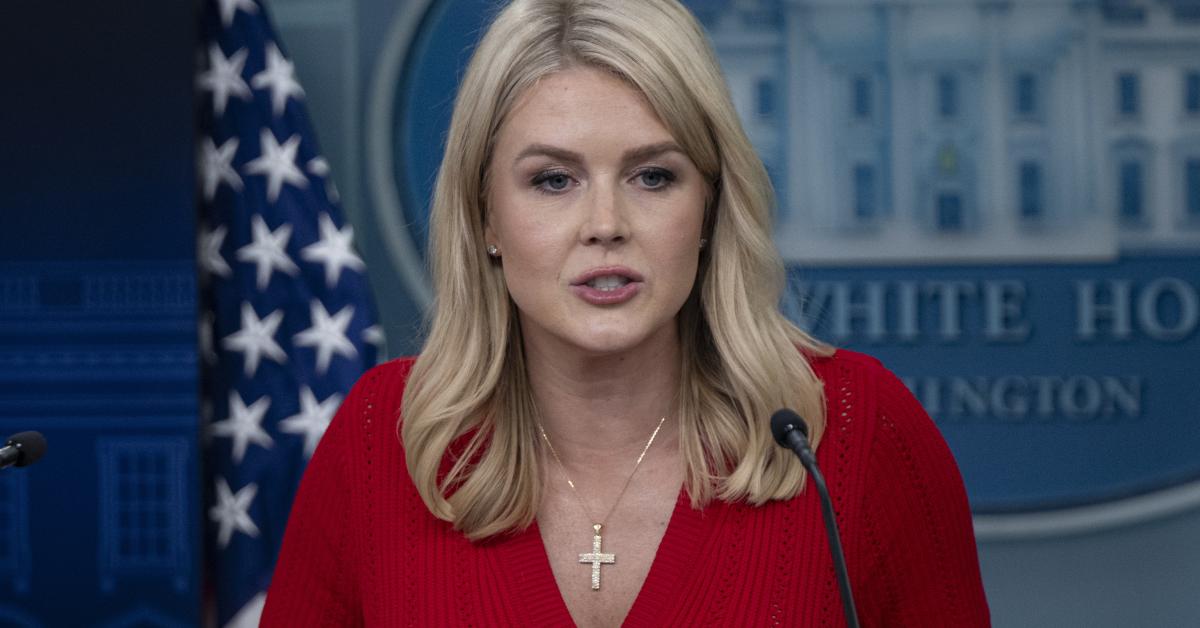The political landscape has intensified as White House Press Secretary Karoline Leavitt revealed that President Donald Trump was “caught off guard” by recent Israeli military operations targeting sites
Did You Know
The Eiffel Tower can be 15 cm taller during the summer due to thermal expansion.
?
AD
in both Syria and Gaza. As the situation escalates, Trump's administration is under pressure to articulate a coherent response to the conflict that has raised urgent humanitarian concerns. Leavitt's statements highlight the complexities of navigating diplomacy in the midst of a rapidly deteriorating crisis, where every move is scrutinized, and public opinion is increasingly volatile.
In a press briefing, Leavitt acknowledged the tragic circumstances faced by civilians caught in the crossfire and stated that the President was surprised by the Israeli strikes. This stance reflects an attempt to address mounting criticisms from activists and international observers who are appalled by the humanitarian implications of ongoing military actions. However, critics argue that the administration is struggling to maintain a narrative that aligns with the stark realities on the ground, exposing a disconnect between political posturing and the dire situation faced by those affected.
As if navigating the foreign policy landscape were not complex enough, Leavitt also addressed immigration issues, responding to a bipartisan amnesty bill that Trump does not support. Yet, her vague remarks about the President's thoughts on a “work program” for illegal aliens left important questions unanswered. This dual challenge of addressing foreign affairs while managing domestic issues reflects the broader difficulties faced by Trump's administration in maintaining clarity and transparency. With lives hanging in the balance, the urgency for strong, coherent leadership has never been clearer.
Q&A (Auto-generated by AI)
What triggered the recent Israeli strikes?
The recent Israeli strikes were triggered by ongoing tensions and military operations in the region, particularly involving Syria and Gaza. These operations are often responses to perceived threats from militant groups and aim to assert Israel's security interests. The strikes have raised significant international concern, especially regarding civilian casualties and humanitarian impacts.
How has Trump responded to Middle East conflicts?
Trump's responses to Middle East conflicts have varied, often emphasizing security and military support for Israel. His administration has been characterized by a strong pro-Israel stance, including recognizing Jerusalem as Israel's capital. However, recent statements indicate he was caught off guard by escalations, suggesting a need for more strategic communication with allies.
What is the significance of Trump's 'work program'?
Trump's 'work program' refers to a proposed initiative aimed at addressing immigration by allowing certain undocumented workers to gain legal status under specific conditions. This approach is significant as it attempts to balance enforcement with humanitarian considerations, reflecting ongoing debates about immigration reform and the complexities of labor needs in the U.S.
What are the implications of the ceasefire in Gaza?
A ceasefire in Gaza is crucial for halting violence and addressing humanitarian crises. It allows for the delivery of aid and reduces civilian suffering. The implications extend beyond immediate relief, influencing regional stability, international relations, and the broader peace process. A sustainable ceasefire could pave the way for negotiations toward a lasting resolution.
How does public opinion affect White House policies?
Public opinion significantly influences White House policies as administrations seek to maintain support and legitimacy. Polls and media coverage can sway decisions, especially on contentious issues like foreign policy and immigration. Leaders often adjust their messaging and actions to align with public sentiment, which can impact legislative agendas and electoral outcomes.
















